1
00:00:03,136 –> 00:00:09,496
É na região de Leiria que se encontra um dos monumentos mais emblemáticos do nosso país –
{{It is in the region of Leiria that one [can] find one of the most emblematic monuments of our country -}}
2
00:00:09,516 –> 00:00:11,976
o Mosteiro da Batalha.
{{the “Monastery of the Battle”.}}
3
00:00:11,976 –> 00:00:17,756
Durante a crise régia de 1383-1385,
{{During the royal crisis of 1383-1385,}}
4
00:00:17,756 –> 00:00:22,116
os portugueses travaram várias batalhas com o Reino de Castela,
{{the Portuguese fought several battles with the Kingdom of Castile,}}
5
00:00:22,116 –> 00:00:27,176
de forma a conseguir manter a sua independência administrativa.
{{in order to maintain its administrative independence.}}
6
00:00:27,176 –> 00:00:29,876
A mais importante e marcante das batalhas
{{The most important and striking of the battles}}
7
00:00:29,876 –> 00:00:33,596
foi travada no campo militar de Aljubarrota,
{{was fought at the Aljubarrota military camp,}}
8
00:00:33,596 –> 00:00:38,796
onde as tropas lusitanas, lideradas por D. Nuno Álvares Pereira,
{{where the Lusitanian troops, led by D. Nuno Álvares Pereira,}}
9
00:00:38,796 –> 00:00:43,816
conseguiram derrotar um exército com cinco vezes o tamanho do seu.
{{managed to defeat an army five times the size of its own.}}
10
00:00:43,816 –> 00:00:46,016
Como resultado dessa vitória,
{{As a result of that victory,}}
11
00:00:46,016 –> 00:00:50,676
D. João I garantiu o trono e a independência de Portugal.
{{D. João I guaranteed the throne and the independence of Portugal.}}
12
00:00:50,676 –> 00:00:54,516
De forma a agradecer à Virgem Maria pela vitória,
{{In order to thank the Virgin Mary for the victory,}}
13
00:00:54,516 –> 00:00:59,636
uma vez que ele lhe terá pedido para que favorecesse as tropas lusitanas,
{{since he would have asked her to favour the Lusitanian troops,}}
14
00:00:59,636 –> 00:01:02,456
o rei ordenou a construção do mosteiro.
{{the king ordered the construction of the monastery.}}
15
00:01:02,456 –> 00:01:06,036
Por essa razão, o mosteiro é também conhecido como
{{For that reason, the monastery is also known as}}
16
00:01:06,036 –> 00:01:09,196
Mosteiro da Nossa Senhora da Vitória.
{{Monastery of Our Lady of Victory.}}
17
00:01:09,196 –> 00:01:13,516
É um fantástico exemplar da arte gótica medieval,
{{It’s a fantastic example of medieval Gothic art,}}
18
00:01:13,516 –> 00:01:18,636
mas, uma vez que a sua construção durou cerca de 150 anos,
{{but since its construction lasted about 150 years,}}
19
00:01:18,636 –> 00:01:22,156
também se encontram vestígios da arte manuelina.
{{there are also traces of Manueline art.}}
20
00:01:22,156 –> 00:01:24,376
Do ponto de vista arquitetónico,
{{From an architectural point of view,}}
21
00:01:24,376 –> 00:01:27,176
além dos seus claustros e da basílica,
{{in addition to its cloisters and the basilica,}}
22
00:01:27,176 –> 00:01:31,116
são de salientar as famosas “capelas imperfeitas”,
{{are the famous “imperfect chapels”,}}
23
00:01:31,116 –> 00:01:35,916
assim chamadas porque, ainda hoje, se encontram por acabar.
{{so called because, even today, they are still unfinished.}}
24
00:01:35,916 –> 00:01:39,836
Reza a lenda que, nos primeiros anos de construção,
{{Legend has it that, in the early years of construction,}}
25
00:01:39,836 –> 00:01:44,056
surgiu algum receio quanto à rigidez de uma das abóbadas.
{{some fear arose about the rigidity of one of the vaults.}}
26
00:01:44,056 –> 00:01:48,396
O arquiteto Afonso Domingues, responsável pela obra,
{{The architect Afonso Domingues, responsible for the work,}}
27
00:01:48,396 –> 00:01:50,776
garantiu a segurança da mesma
{{guaranteed its safety}}
28
00:01:50,776 –> 00:01:56,596
tendo-se colocado debaixo dela, sem receio, durante 3 dias inteiros.
{{having placed himself under it, without fear, for three whole days.}}
29
00:01:56,596 –> 00:02:02,736
O Mosteiro da Batalha representa também o início da dinastia real de Avis,
{{The Mosteiro da Batalha also represents the beginning of the royal dynasty of Avis,}}
30
00:02:02,736 –> 00:02:09,476
a dinastia durante a qual Infante D. Henrique deu início à expansão marítima portuguesa.
{{the dynasty during which Prince Henry the Navigator began the Portuguese maritime expansion.}}
 We respect your privacy and have a ZERO TOLERANCE for spam.
We respect your privacy and have a ZERO TOLERANCE for spam.

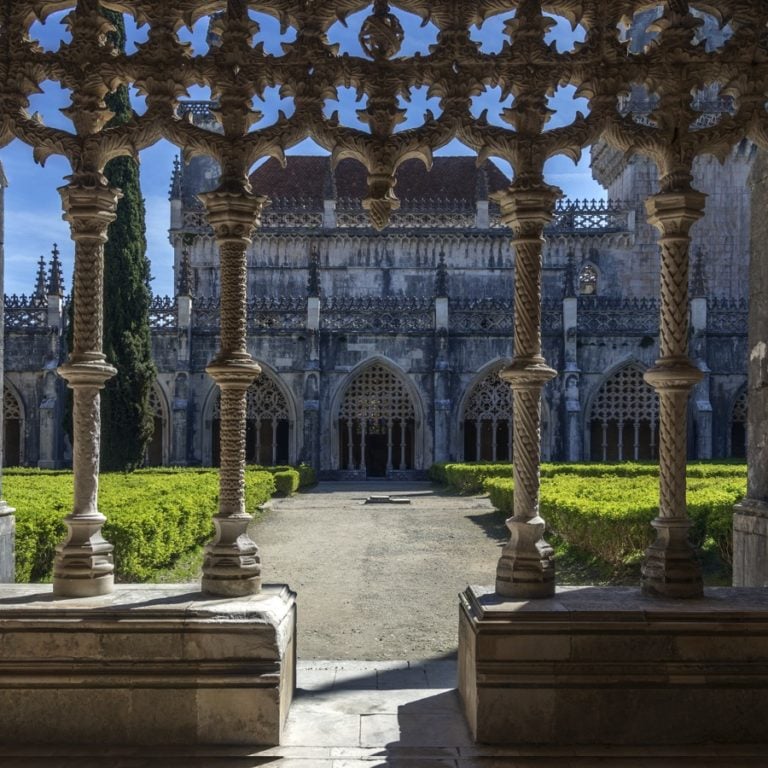




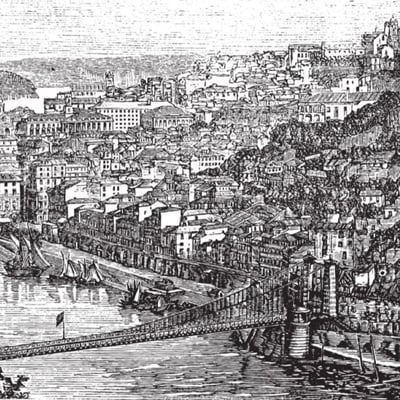


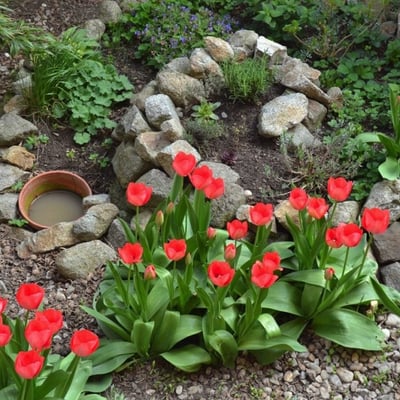

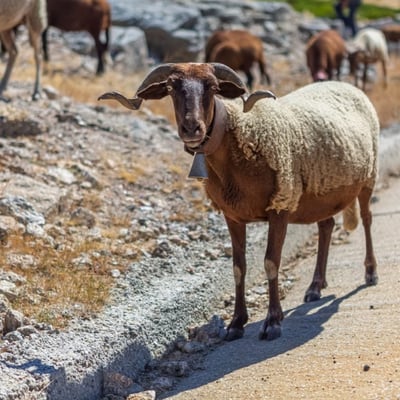
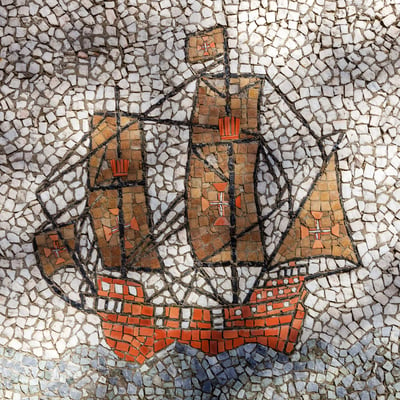



It appears that the phrase “uma ver que,” used twice in the story, means “since” in the sense of “because.” Could you use “desde que” or “porque” instead? Is there a difference in context?
Olá, Jay. Yes, “uma vez que” means “since” in the sense of “because”. But “desde que” is not interchangeable with it, because it only means “since” in the sense of “from the moment when” (or, in other contexts, “as long as”).
“Porque” means “because”, but it’s usually not a good substitute for “uma vez que” either. “Uma vez que” is often used in contexts where in English we could use “given that…” or “considering that…”. “Porque” is used in a more straightforward way that couldn’t be translated like that. So, that should be a good way to figure out when you can use one or the other – think how the sentence could go in English.
1st time securing 100% on my first try (on a C1 shorty/quiz) – #progress!!!! Thank you, PP!!!!
Parabéns! That’s awesome! 🙂
Obrigado, Molly! 🙂 Hope your New Year is off to a terrific start!
Só uma perguntinha:
infiltrou-se por acaso um erro de datilografia?
cito: 1:39
“ surgiu algum receio quanto à rigidez de uma das abóbodas.”
A palavra não devia ser “abóbadas”?? Com “a”?
Obrigada
Certíssimo, Sabine. Obrigado!
” ele lhe terá pedido ” – can you help clarify this use of the future of ter to express something uncertain in the past. Interesting that it isn’t using the subjunctive instead . Am I right in thinking it gives a sense of “would have ” or “may have”? Any guidance on this would be great, as I’m finding it difficult to drill down through other grammar sources to find out more about it.
Thanks
Olá, Andrew. we call this the future perfect: simple future + past participle. It could have been easily replaced by the simple past “ele pediu-lhe”, but like you said, the future perfect helps express an added level of uncertainty about what’s being said, like when we say that something allegedly happened. So, you’ll often see this construction whenever an unconfirmed fact is being reported, as is the case here. It’s more often used in formal speech/writing.
Em Inglaterra tambem tinhamos uma monasteiro chamada batalha, perto de Hastings, portanto o nome, mas gracas a primeiro brexit de Henry VIII hoje fica em ruinas.
(uuf desculpe meu gênero erros)